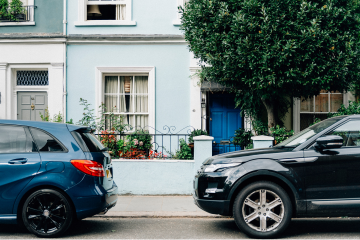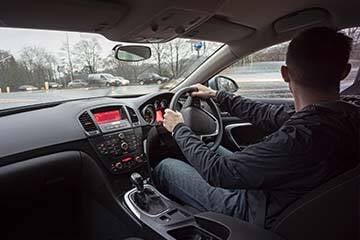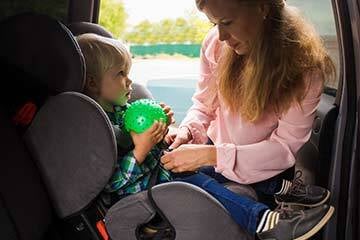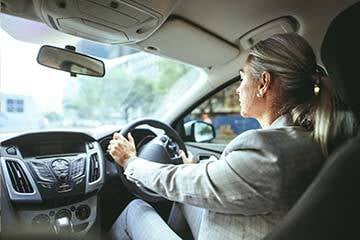The government made a fresh announcement on the petrol and diesel car ban in January this year. It's committed to no new petrol and diesel cars being sold by 2030. And by 2035 all new cars and vans will need to be 100% zero emissions. This is good news for the UK becoming a zero emissions country - but the ban is just 5 years away, and drivers are concerned about charging infrastructure and the cost of EVs.

What's the latest update on the petrol and diesel car ban?
The government has confirmed that the petrol and diesel car ban will happen in 2030. It's restored the deadline back to 2030 so it can progress on its commitment for clean energy and economic growth.
Since the conservative government announced the ban back in 2017, there have been lots of changes. Initially the government set the ban to 2040, but then the party brought it forward to 2035.
In January, the government launched a consultation aimed at automotive and charging experts to seek opinions on the ban.
While the ban could help to reduce the UK's emissions, there's concerns from automotive experts that the demand for electric vehicles isn't there. This could be because of the price of electric cars and the lack of charging points.
In fact, Lisa Brankin, Ford UK's managing director said
"The one thing that we really need is government-backed incentives to urgently boost the uptake of electric vehicles."
The average price of a new EV is £46,000, the cheapest is around £15,000.
Car insurance is also slightly more expensive for EVs because they're more difficult to repair than petrol and diesel cars. The parts could also be more expensive.
Also, EV owners will have to tax their cars from 2025. Not having to pay car tax was a big draw for EV considerers, so this could be holding people back from buying.
But Department for Transport minister Heidi Alexander says:
"Our plans will restore clarity for manufacturers, provide renewed confidence for charging infrastructure investors and give confidence to consumers considering making the switch."
So, there's seems to be renewed energy (pardon the pun) for the ban by the Labour government. But what does that mean for drivers?
Has there been any changes to charging points in the UK?
A hang-up for people considering an EV is the lack of charging points in the UK. To improve this, the government has set a target of creating 300,000 public charging points by 2030.
According to Zap Map, there were 19,384 charging points added to the UK's charging network in 2024. That's 19% more than in 2023. By the end of 2024, there were 73,000 charging points in the UK. Overall, that's an increase of 37% since December 2023.
So we're 24.3% of the way to reaching the target of 300,000. But there are another 100,000 planned by local councils across England.
But can they deliver this? Earlier this year, BT announced it was scrapping the scheme to turn green street cabinets into charging points. These cabinets could be largely redundant now as the UK turns to fibre optic broadband - so it was a unique opportunity to repurpose them.
But BT only completed one installation out of the 60,000 the company promised. BT are instead going to focus on Wi-Fi connectivity challenges surrounding EVs.
Despite this setback on a good chunk of the 300,000 target, the government are still confident that with extra funding for local councils, they could reach this goal.
In her statement, Heidi Alexander announced £6 billion of private investment out to 2030 which should make charging infrastructure quicker and easier to install. She also announced simplified planning rules, resource funding for local councils, and publishing the governments review to speed up grid connections.
If you want to find charging points near you, put your postcode into our EV charging point map
Can I still drive my petrol of diesel car after the ban?
Yes, you can still drive your car after the petrol and diesel car ban. The ban only applies to the sale of new petrol and diesel cars.
After the ban, or even leading up to it, you might find that there are more low emission zones rolled out in cities across the UK. The ultra low emission zone (ULEZ) in London is an example of this.
How does the petrol and diesel ban affect hybrid cars?
If you own a hybrid car, you'll be able to drive it after the ban. At the moment, the government is still consulting on whether hybrids could still be sold alongside fully electric vehicles. Hopefully this'll be announced in time.
Should I buy a petrol, diesel or hybrid car before the ban?
This is up to you, your driving needs and your budget. You'll still be able to buy second hand petrol and diesel cars from 2030 - but they might be more expensive. The ban only applies to new vehicles.
But it could be a good idea to future proof yourself and get an EV, that's if you have the budget and an area to charge it. Read our tips on buying an EV if you're thinking of making the switch.
Will there still be petrol stations after 2030?
Yes, even after the ban, there'll be petrol stations. That's because you'll still be able buy second hand petrol and diesel cars. Petrol stations will likely have more EV charging points though.
How does the ban affect classic cars?
In short, it doesn't. Even after the ban, you can still drive your classic car. You can still take it to garages for repairs and you'll be able to fuel up easily. The only thing that might change is the cost. It might be more expensive to fuel up after the ban and it might be more expensive to get your car repaired. But this isn't a certainty.
Compare car insurance quotes







